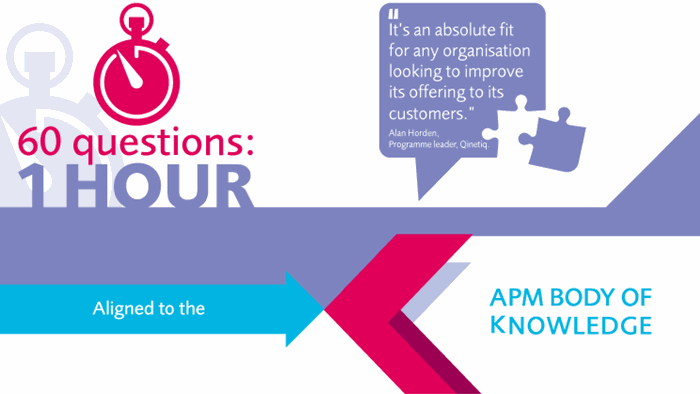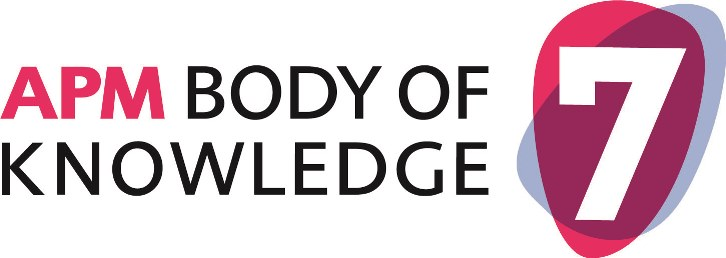Transition from the APM BoK6 to BoK7 differences
 As the world continues to change, it is clear that the only constant in the world is change. Here at CITI we are a change consultancy and as such should set an example when it comes to dealing with change. One change that is very important to us currently is the move from the APM Body of Knowledge from the 6th edition (BoK6) to the 7th edition (BoK7) and APM BoK6 to BoK7 differences. We know this change may cause concern as candidates may not know what to expect, but I’m here to explain to you why there’s no need to worry.
As the world continues to change, it is clear that the only constant in the world is change. Here at CITI we are a change consultancy and as such should set an example when it comes to dealing with change. One change that is very important to us currently is the move from the APM Body of Knowledge from the 6th edition (BoK6) to the 7th edition (BoK7) and APM BoK6 to BoK7 differences. We know this change may cause concern as candidates may not know what to expect, but I’m here to explain to you why there’s no need to worry.
We have been providing the new APM BoK7 examinations for a couple of months to anyone who has studied it elsewhere, but now we are making the transition to our own new and improved APM Project Fundamentals distance learning course that is aligned to the APM Body of Knowledge 7th Edition (but don’t worry you can still complete the old exam!).
What is the Body of knowledge?
If you have discussed the APM PFQ with us recently you may have heard us mention APM BoK6 to BoK7 differences, well those are the current Bodies of Knowledge. These BoK’s are the basis of any course teaching the APM methodology, they decide what terms are used or how you carry out your project management tasks. The current Body of Knowledge (BoK6) has been in use since 2017 and was supposed to be phased out in May 2020, but due to the COVID-19 global pandemic this was pushed back to January 2021.
How does this affect me?
The truth is not much; if you haven’t purchased the APM Project Fundamentals Qualification (APM PFQ) yet you will be put straight onto BoK7. If you are already studying the APM PFQ you have until 1st January 2021 to book and sit your exam (there are re-sits after this date on the 25th and the 26th of January 2021); if you don’t think you will be ready by this date you can speak to us on the live chat at the bottom of the page to discuss getting moved onto the updated BoK (please let us know if you have any questions about the APM BoK6 to BoK7 differences). Anyone who is currently studying with us will automatically be updated to the BoK7 distance learning free of charge in 2021, and unlike other providers you will continue to have unlimited access to our distance learning indefinitely (examination fee is for one attempt).
What will the exams be like?
The format of the exam is staying exactly like it was before! The PFQ exam will still be 1 hour long with 60 multiple choice questions needing 36 correct answers, or 60% of a total of 60 marks to pass. The only change to the exam will be the content that you are being tested on.
Looking forward to the release of the APM Project Management Qualification course for BoK7 the exam will still be 3 hours long writing answers to 10 out of 16 questions which are each worth 50 marks, you need 55% to pass.

What are the APM BoK6 to BoK7 differences?
The changes are mostly to the terminology used along with certain definitions. Along with this there are also some small changes to the syllabus, but these are mostly minor. There are also new roles, new life cycles, and chain analysis. The BOK7 is contained within the following chapters:
- Setting up for success is written primarily for those leaders within organisations who have decisions to make about the role of projects, programmes and portfolios in implementing strategy. Leaders may be in the ‘client’ or investing organisation, or in a supplier organisation that exists to deliver project-based work for clients. The ideas in Chapter 1 apply in both scenarios.
- Preparing for change is written primarily for those people charged with leading any project, programme or portfolio, of any size and complexity. It addresses early life cycle shaping and late life cycle transition into use for projects, programmes and portfolios, as well as matters of assurance, learning and maturity.
- People and behaviours is written for anyone involved in projects, programmes and portfolios. Engaging and influencing stakeholders, forming, building and leading teams, and the generic skills and responsibilities of being a project professional are addressed with the objective of making it clear that all project-based work relies fundamentally on the ability of people to work together.
- Planning and managing deployment is written primarily for those involved in the end-to-end process of delivering a project, whether a standalone project or one that is part of a programme and/or portfolio, and regardless of the life cycle approach taken. Although the professional domain has expanded, the detailed matters associated with defining outputs, integrated planning and controlling deployment remain.
You can view a sample chapter of the APM Body of Knowledge 7th Edition here.

To add further insight, the following quote from the APM Crafting the Body of Knowledge – many terms will be unchanged, others slightly amended. Some terms will disappear and still more will be introduced for the first time as this Body of Knowledge fully embraces aspects of project-based working such as iterative life cycles, business change and the organisational context for the first time. Other definitions will exist in other APM documents for other purposes, for example, the Body of Knowledge will not define every term necessary to pass the APM Project Management Qualification.
In the BoK7, the APM explicitly acknowledge the ability to choose between multiple forms of life cycle – from one designed to guide the management of deliberate change in a linear fashion to one designed to guide the shaping of emergent change in an incremental, iterative or evolutionary way. Avoiding any simplification of this matter by referring to ‘waterfall vs agile’, we outline the choices that leaders can make and acknowledge the reality that many project-based endeavours now adopt some sort of hybrid linear/ iterative life cycle approach. Using a mixed approach, or hybrid project management, is something we have been debating and discussing for a number of years at CITI.
Will my BoK6 certificate still be valid?
Yes, unlike PRINCE2 where certifications expire – if you already have the APM PFQ or PMQ you will still be qualified and don’t need to retake the course for the BoK7, whether you take the BoK6 or BoK7 the certificate is still the same so it has no APM BoK6 to BoK7 differences.
What about the PMQ?
If you are taking the PMQ and don’t think you’ll be ready or if you are looking to purchase the course don’t worry we haven’t forgotten about you. The APM Project Management Qualification is a bit longer and as such takes more time to prepare but we hope to have it ready to go very soon.
What if I have more questions?
If you have more questions or have any worries we are active on the LiveChat as much as possible, if you can’t contact us there then you can email Support@citi.co.uk


